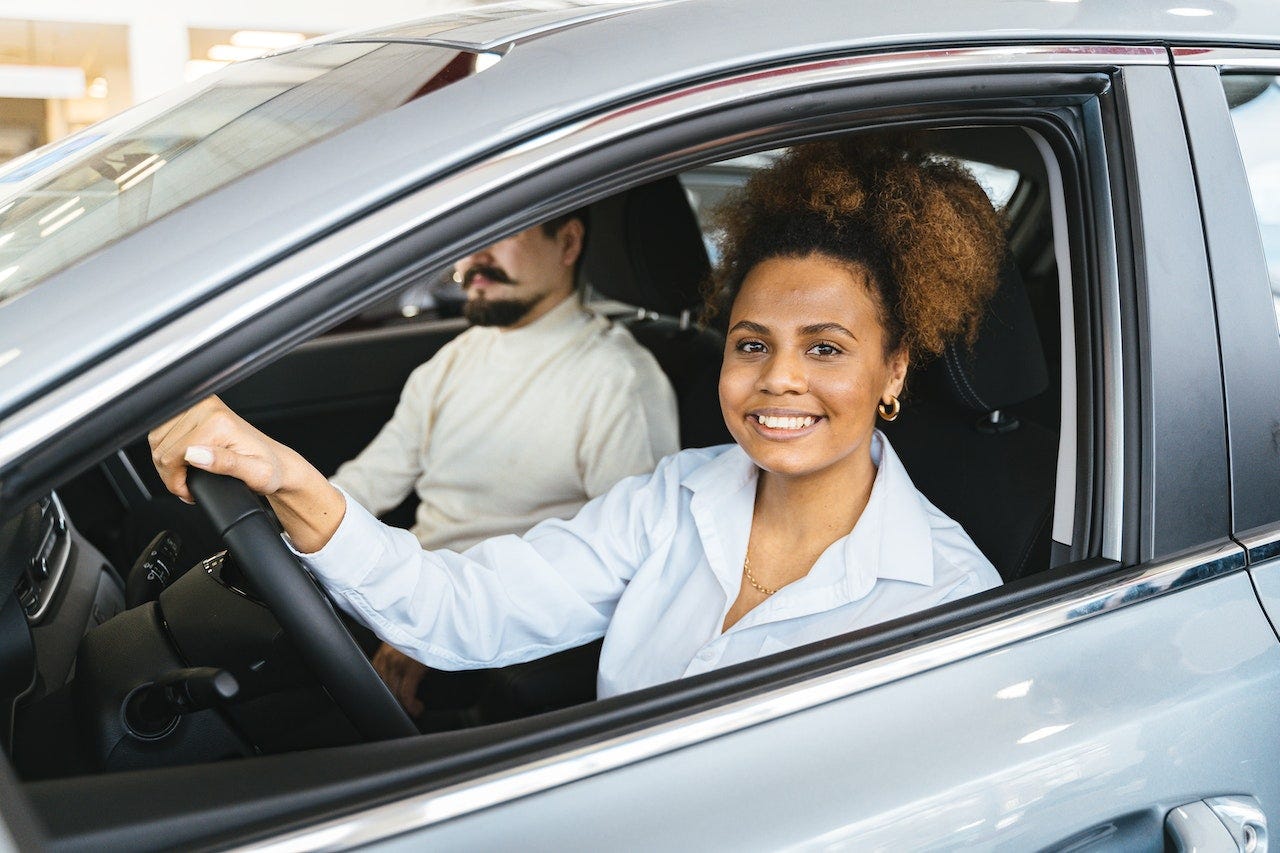The price of this car is your data
You treat data like it's worth $0, but it's priceless to a long list of people.
Americans have no problem giving up all their data in exchange for "free" videos on TikTok. It makes me think about the Zero-Dollar Mobility concept—using data as a form of partial or total payment.
"We want to track everything you do and say and type on all your devices in exchange for showing you mindless videos."
"Oh it’s totally worth it. I can't believe this is free!"
vs.
"We want to track your car's sensors in exchange for a free car."
"Get out of here with your big brother schemes!"
Invasion of privacy is the go-to defense mechanism against any integrated mobility platform or smart cities digital solution. Data security is a serious issue, but it’s absurd to pretend Americans aren’t constantly giving away all their secrets to the lowest bidders.
I think it’s fair to say most of us don’t understand how valuable traveler data/metadata is. We know data is a thing that gets shared, sold, hacked, sold, borrowed, and sold. But is our data really important enough that a car manufacturer would offer a free car in exchange for it? My gut feeling is they’d make that deal in a heartbeat. Some data they’d keep for themselves to make their own products and services better, and some they’d sell to others. And it’s not just about selling your location to retail giants who can blitz you with ads. The National Oceanic and Atmospheric Administration would love to get their hands on localized environmental data, for example.
Cities and counties want to make smart decisions about their infrastructure, which means they need data on where people live, work, and shop, and how they get there. This information can help them improve transportation and create better bike lanes, curbs, and sidewalks. Advertisers and digital marketers already understand the value of your data, but government agencies, transportation engineers, and urban planners are just starting to catch on.
Below are 20 types of data that are valuable to public agencies, manufacturers, private corporations, etc.
I’m sure this list is barely scratching the surface, but it’s a starting point for skeptics of the Zero-Dollar Mobility concept. This list is car-centric, but there are definitely ways to trade data for transportation in any/every mode.
GPS data for better traffic flow management and route optimization.
Accelerometer data to detect crashes and monitor driver behavior for safety and insurance purposes.
Tire pressure sensors to improve fuel efficiency and tire life.
Fuel consumption data to optimize engine performance and create more accurate fuel economy ratings.
Vehicle speed data to enforce speed limits and analyze traffic patterns.
Audio data to improve voice recognition systems and provide feedback for in-car systems.
Video data for safety and security monitoring, as well as for training purposes for autonomous driving systems.
Battery performance data to monitor battery life and make improvements to battery technology.
Engine temperature data to monitor engine health and optimize engine performance.
Braking data to improve brake system design and detect potential issues before they become serious.
Maintenance data to predict and prevent breakdowns and other issues.
Environmental data to study and reduce emissions and monitor air quality.
Location data to analyze travel patterns and improve bus/train routes and schedules.
Driver biometric data for monitoring driver health and well-being.
Occupancy data to improve airbag systems and detect potential safety issues.
Steering data to improve system design and detect potential issues before they become serious.
Suspension data to improve suspension system design and detect potential issues before they become serious.
Road surface data to improve road maintenance and design, and detect potential safety issues.
Vehicle weight data to improve fuel economy and optimize vehicle design.
Weather data to monitor and predict local weather patterns and improve road safety.
We bundle products and services in a bunch of other industries. For years, I enjoyed “free” phones from Verizon, even though the phone itself had costs associated with it. Last year they gave me a “free” laptop as a loyalty gift. Data wasn’t involved, but you get the idea. The direct costs of transportation (cars in this case) don’t need to be paid directly by the operator of the vehicle.
There are so many paths to take these ideas. I’m going to write and share a fake business plan and pitch summary soon to get your creative juices flowing. The more urbanists talking about this, the better.



Thank you, no. Surveillance capitalism has gone far enough, it's already well across the line of acceptable. There's so much derision in the urbanist space for the conspiracy theory that 15-minute cities are a totalitarian surveilance dystopia. Maybe, as an idea, we should stop proposing neat new concepts that move those theories closer to reality.